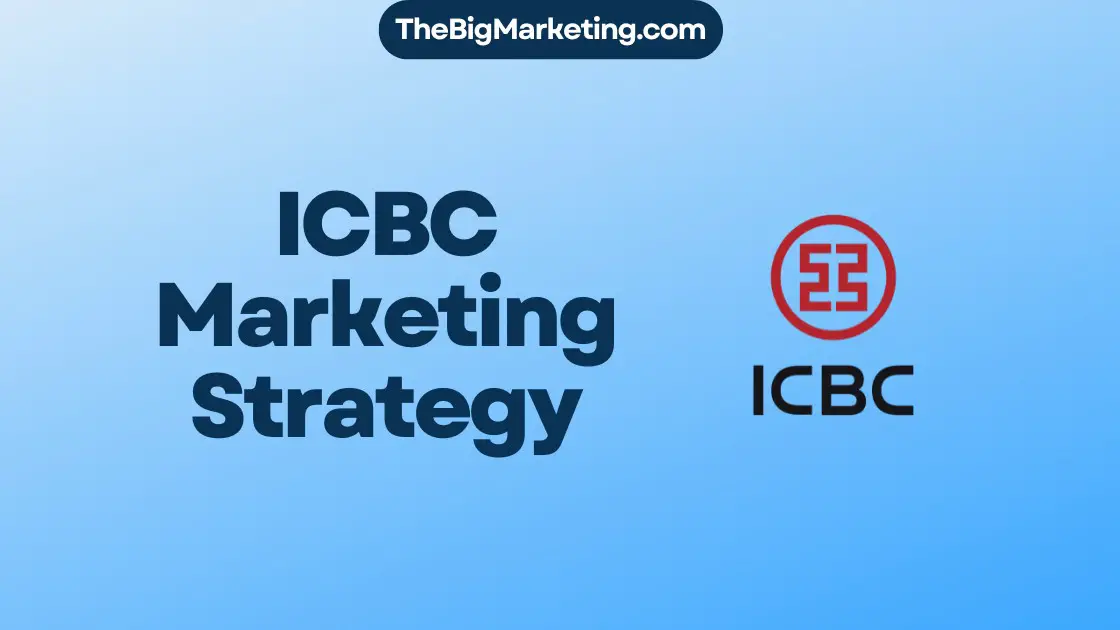Content marketing is a powerful and cost-effective method of engaging with online audiences. As stated by the Content Marketing Institute, it costs 62% less than traditional marketing while generating three times as many leads. With businesses increasingly investing in content marketing, it has become crucial to establish themselves as industry authorities and build trust among their target audience. To develop a successful content marketing strategy for 2024, it is essential to have a solid foundation, including conducting audience analysis, defining goals, and creating a content calendar.
Key Takeaways:
- A well-executed digital content marketing strategy can effectively reach and engage with online audiences.
- Content marketing costs less than traditional marketing and generates a higher number of leads.
- Businesses invest in content marketing to establish authority and build trust with their audience.
- A successful content marketing strategy for 2024 requires audience analysis, goal definition, and a content calendar.
- Understanding the basics of content marketing is essential for creating an effective strategy.
What is Content Marketing and Why is it Important for Businesses?
Content marketing is a powerful marketing strategy that involves creating and distributing valuable and relevant content to attract and engage target audiences. It goes beyond traditional advertising by providing audiences with useful and engaging information and insights. This approach focuses on building trust, driving website traffic, and fostering strong relationships with customers.
One of the key benefits of content marketing is its ability to increase brand awareness. By creating high-quality content, businesses can position themselves as industry thought leaders and establish their brand identity. When carefully crafted to cater to the interests and needs of the target audience, content marketing can generate organic traffic, leading to improved website visibility and increased brand recognition.
Another advantage of content marketing is its potential for generating qualified leads and driving traffic to businesses’ websites. By developing content that addresses the pain points and challenges of their target audience, businesses can attract and engage potential customers. This engagement can lead to increased conversions, ultimately driving business growth.
Content marketing also plays a crucial role in building relationships with customers. By consistently delivering valuable content that is tailored to the interests and preferences of the target audience, businesses can foster trust and loyalty. This can result in repeat sales, word-of-mouth recommendations, and positive customer experiences.
Overall, content marketing is an essential tool for businesses looking to establish a strong online presence and connect with their target audience. It helps businesses build brand awareness, generate traffic, and cultivate meaningful relationships with customers, ultimately contributing to long-term success.
Developing a Successful Content Marketing Strategy Always Starts with the Basics
To develop a successful content marketing strategy, it is essential to start with the basics. This includes conducting thorough audience analysis to understand the target audience and their needs, interests, and preferences. By understanding who your target audience is, you can tailor your content to resonate with them and provide value.
In addition to audience analysis, defining clear and measurable goals is crucial for a successful content marketing strategy. Whether your goal is to increase brand awareness, generate leads, or boost product sales, clearly defining these objectives will help guide your content creation and distribution efforts.
To keep your content marketing strategy organized and on track, it is important to create a content calendar. A content calendar helps ensure that your content is planned, executed, and monitored consistently. It allows you to map out your content topics, keywords, and publication schedule, helping you stay organized and maintain a consistent flow of content.
By starting with the basics of audience analysis, goal definition, and content calendar creation, you lay a strong foundation for your content marketing strategy. These steps enable you to create targeted, relevant, and consistent content that resonates with your audience and drives the desired outcomes.
The Importance of Audience Analysis
Audience analysis is a critical component of developing a successful content marketing strategy. By understanding your target audience, their demographics, interests, preferences, and pain points, you can create content that speaks directly to them. This leads to higher audience engagement, increased brand loyalty, and ultimately, more conversions.
Defining Clear Goals
Defining clear goals for your content marketing strategy helps align your efforts and ensures that you are working towards measurable outcomes. Whether your goal is to increase brand awareness, drive website traffic, generate leads, or boost product sales, clearly defining these objectives provides a roadmap for your content creation and distribution efforts.
Create a Well-Planned Content Calendar
A content calendar is an essential tool for organizing and managing your content marketing strategy. It helps you plan and schedule your content in advance, ensuring a consistent flow of high-quality content. With a content calendar, you can strategically align your content with important dates, events, and promotions, maximizing its impact and effectiveness.
How should you approach your content marketing strategies for 2024?
In 2024, it is crucial to adapt content marketing strategies to keep up with the evolving trends and technologies in the digital landscape. Marketers need to stay ahead of the game by embracing new techniques while optimizing existing ones for optimal results. Here are some key areas to focus on:
1. Blog Marketing
Blog marketing continues to be a cost-efficient and effective strategy for attracting organic traffic and promoting marketing goals. By creating high-quality, informative, and engaging blog posts, businesses can establish themselves as thought leaders in their industries. Blogs also serve as a platform for sharing valuable content, driving traffic to websites, and generating leads. To optimize blog marketing efforts, utilize relevant keywords, create catchy headlines, and incorporate multimedia elements to enhance the overall reader experience.
2. Social Media Evolution
Social media marketing is rapidly evolving, and it’s essential for marketers to stay updated with new platforms and formats. With the rise of short-form videos, platforms like TikTok and Instagram Reels offer unique opportunities to showcase products, services, or brand stories in a visually appealing and engaging way. Stay up to date with social media trends, leverage user-generated content, and foster authentic connections with your audience through creative and interactive content.
3. Video Content Creation
Video content creation has become more challenging due to increased competition. To stand out in the crowd, invest in creating compelling and visually appealing videos. Incorporate storytelling techniques, use captivating visuals, and optimize videos for search engines to improve discoverability. Consider partnering with influencers or industry experts to reach a wider audience and increase engagement. Remember that variety is key, so explore different video types such as tutorials, product showcases, behind-the-scenes footage, or customer testimonials.
4. Content Personalization
Personalization is in high demand as consumers seek relevant and targeted content. Tailor your content to the specific interests, needs, and pain points of your target audience. Leverage data analytics and audience segmentation to deliver personalized experiences across various channels. Use dynamic content modules, personalized recommendations, and personalized email marketing campaigns to engage your audience on a deeper level.
5. Data-driven Tools
Data-driven tools are essential for tracking metrics and making data-backed decisions. Utilize tools that provide insights into audience behavior, content performance, and social media analytics. Analyzing data helps identify trends, optimize content creation strategies, and refine marketing campaigns for better results. Stay updated with the latest analytics tools and platforms to stay competitive in the digital landscape.
6. Interactive Content
Interactive content is gaining popularity as it offers a more engaging and immersive experience for users. Incorporate quizzes, polls, surveys, and interactive infographics to encourage user participation and drive engagement. Interactive content fosters a sense of interactivity, helps gather valuable insights, and keeps your audience invested in your brand or message.
| Key Strategies for 2024 | Benefits |
|---|---|
| 1. Blog Marketing | Attract organic traffic Promote marketing goals Establish thought leadership |
| 2. Social Media Evolution | Reach wider audience Enhance engagement Showcase visual content |
| 3. Video Content Creation | Stand out from competitors Increase engagement Utilize storytelling techniques |
| 4. Content Personalization | Deliver targeted content Enhance user experience Increase customer loyalty |
| 5. Data-driven Tools | Track performance metrics Make data-backed decisions Optimize marketing strategies |
| 6. Interactive Content | Increase user engagement Gather valuable insights Create memorable experiences |
What is a Digital Content Marketing Strategy?
A digital content marketing strategy encompasses the planning, creation, distribution, and management of content across digital platforms to attract, engage, and convert audiences. It involves understanding the target audience, creating relevant and valuable content, and utilizing various channels for distribution. The ultimate goal is to drive audience engagement and achieve marketing objectives.
Developing a successful digital content marketing strategy requires a comprehensive approach that considers the various elements involved in creating and delivering content to the target audience.
Content Creation
Effective content creation is at the core of a digital content marketing strategy. By developing high-quality, relevant, and valuable content, businesses can establish themselves as thought leaders in their respective industries and attract and engage their target audience. This can be achieved through a variety of content types, including:
- Blog posts
- Infographics
- Videos
- Whitepapers
- Case studies
By utilizing a mix of these content types, businesses can cater to the diverse preferences of their audience and effectively communicate their message.
Content Distribution and Management
Once the content is created, it needs to be distributed across various digital platforms to reach the intended audience. This involves leveraging channels such as:
- Social media platforms
- Email marketing campaigns
- Search engine optimization
- Influencer outreach
By strategically distributing content through these channels, businesses can increase their visibility, attract new audiences, and drive traffic to their website or other online assets.
However, it is not enough to simply create and distribute content. A successful digital content marketing strategy also involves the management of content assets. This includes:
- Tracking content performance and analytics
- Updating and repurposing content as needed
- Maintaining consistency in brand messaging and voice
By effectively managing content, businesses can ensure that their digital content marketing strategy remains relevant, engaging, and valuable to their audience.
Here is a visual representation of the key components of a digital content marketing strategy:
| Components | Description |
|---|---|
| Target Audience | Identify and understand the audience and their needs |
| Content Creation | Create valuable and engaging content |
| Content Distribution | Utilize various channels to distribute content |
| Content Management | Track performance, update, and maintain content |
| Audience Engagement | Interact and engage with the audience |
A robust digital content marketing strategy incorporates all these components and ensures that businesses effectively reach and engage their target audience, driving success in the digital landscape.
Benefits of Digital Content Strategy
A well-defined digital content strategy offers several key benefits for businesses. By implementing a strategic approach to content creation and distribution, businesses can leverage the power of digital marketing to enhance brand visibility, improve audience engagement, and gain a competitive advantage in the digital landscape.
Enhanced Brand Visibility
One of the primary benefits of a digital content strategy is the ability to increase brand visibility. By creating valuable and relevant content and promoting it across various digital platforms, businesses can raise awareness and establish a stronger online presence. This increased visibility allows businesses to reach a wider audience, attract new customers, and build brand recognition.
Audience Engagement
A well-executed digital content strategy can significantly improve audience engagement. By creating content that resonates with the target audience, businesses can captivate their attention and foster trust and loyalty. Engaging and valuable content encourages active participation, such as likes, comments, and shares, which helps expand the reach of the content and organically grow the audience.
Targeted Content Creation
In a digital landscape where consumers are constantly inundated with information, targeted content creation is essential. A digital content strategy enables businesses to tailor their content to specific audience segments, ensuring relevance and value. By understanding the needs, interests, and preferences of their target audience, businesses can create content that effectively resonates and satisfies their audience’s expectations.
Data-driven Decision Making
By leveraging data analytics and metrics, businesses can make informed and data-driven decisions regarding their content marketing efforts. A robust digital content strategy incorporates analytics tracking and analysis to measure the performance and effectiveness of content campaigns. This allows businesses to identify what content resonates with their audience, which channels yield the best results, and make data-backed decisions to optimize their content strategies accordingly.
Competitive Advantage
A well-executed digital content strategy provides businesses with a competitive advantage. By consistently delivering high-quality content that resonates with the target audience, businesses can outshine their competitors and establish themselves as industry leaders. The ability to engage and inform the audience effectively helps create a positive brand impression and differentiate the business from competitors in the saturated digital landscape.
| Benefits of Digital Content Strategy |
|---|
| Enhanced brand visibility |
| Audience engagement |
| Targeted content creation |
| Data-driven decision making |
| Competitive advantage |
5 Components of An Effective Digital Strategy
An effective digital content strategy consists of five key components that are crucial for success.
- Business Goals: Clearly defined business goals provide the foundation for your digital strategy. These goals act as a roadmap and guide every decision and action taken to achieve them.
- Target Audience: Understanding your target audience is essential for tailoring your content to their needs and preferences. By analyzing their demographics, behaviors, and preferences, you can create content that resonates with them.
- Content Plan: A comprehensive content plan outlines the types of content you will create, the channels you will distribute it on, and the publication schedule. This ensures a cohesive and consistent content strategy.
- Tools & Technology: The right tools and technology enable efficient execution of your digital strategy. Whether it’s content management platforms, analytics tools, or automation software, leveraging technology can streamline your processes and enhance performance.
- Operations: Establishing clear processes and workflows ensures smooth operations and coordination within your team. Effective communication, collaboration, and project management are essential for implementing your digital strategy successfully.
By incorporating these five components into your digital strategy, you can set a strong foundation for achieving your business goals, reaching your target audience, creating valuable content, leveraging the right tools and technology, and optimizing your operations.
Implementing Business Goals
Before diving into the other components, it is important to define your business goals. These goals will drive your entire digital content strategy and act as the guiding force behind your decision-making process. Whether you aim to increase brand awareness, drive website traffic, generate leads, or boost sales, your goals provide direction and focus.
Understanding Your Target Audience
By gaining a deep understanding of your target audience, you can create content that resonates with them and addresses their pain points. Conduct market research, use analytics tools, and engage with your audience to gain insights about their demographics, preferences, and behaviors. This knowledge will help you tailor your content to their needs and deliver value that drives engagement and conversions.
Developing a Comprehensive Content Plan
A well-planned content calendar is essential for organized and consistent content creation and distribution. Define the types of content you will produce, such as blog posts, videos, infographics, or podcasts. Determine the platforms and channels you will use and plan a publication schedule. This comprehensive plan ensures that your content strategy aligns with your goals and maintains a consistent brand voice.
Utilizing the Right Tools & Technology
Various tools and technology can enhance your digital strategy’s execution and performance. Content management systems, SEO optimization tools, social media scheduling software, and analytics platforms are just a few examples. Research and invest in the tools that align with your strategy and enable efficient content creation, distribution, and performance tracking.
Establishing Smooth Operations
A digital strategy is not just about content creation; it also requires effective operations and coordination. Establish clear processes and workflows for content creation, review, approval, and distribution. Foster effective communication, collaboration, and project management among team members to ensure smooth execution of your strategy.
Most Popular Content Types
When it comes to digital content strategies, businesses have a plethora of options to choose from. Incorporating various content types can help engage and resonate with different audiences. Here are some of the most popular content types that businesses can leverage:
Videos
Videos are highly engaging and versatile. They can be used to showcase products, demonstrate processes, or tell compelling stories. Whether it’s a promotional video, a tutorial, or a behind-the-scenes look, videos have the power to captivate and connect with viewers.
Blog Posts
Blog posts provide informative and educational content to readers. They can be used to share industry insights, thought leadership pieces, or step-by-step guides. Well-written blog posts can establish a business as an authority in its field and attract organic traffic to the website.
E-newsletters
E-newsletters are effective for nurturing leads and keeping the audience updated on the latest news, trends, and offers. They allow businesses to maintain regular communication with subscribers and provide valuable content directly to their inboxes.
Tutorials
Tutorials are comprehensive resources that provide step-by-step instructions on how to accomplish specific tasks. They can be in the form of written guides, videos, or interactive demonstrations. Tutorials are valuable for educating and empowering the audience.
Courses
Courses offer in-depth educational resources and allow businesses to position themselves as trusted sources of knowledge. They can be delivered through online platforms, webinars, or virtual classrooms. Courses provide a structured learning experience for the audience.
Demos
Demos showcase the features and functionalities of products or services. They can be interactive presentations or live demonstrations that give potential customers a firsthand experience. Demos serve as powerful sales tools and help users understand the value of a product.
Podcasts
Podcasts have gained significant popularity in recent years. They offer audio content that can be streamed or downloaded. Businesses can leverage podcasts to share valuable insights, interviews with industry experts, or engaging storytelling.
Webinars
Webinars allow for interactive presentations, where businesses can engage with their audience in real-time. They can be used for educational purposes, product launches, or interactive Q&A sessions. Webinars create a sense of community and enable businesses to establish themselves as thought leaders.
Ebooks
Ebooks provide comprehensive written content that can be downloaded or accessed digitally. They offer in-depth information on specific topics and can be used to generate leads or provide additional value to the audience. Ebooks are versatile assets that can be distributed through various channels.
By incorporating a mix of these popular content types into their digital content strategies, businesses can effectively engage and connect with their target audience. Each content type brings its own unique benefits and allows businesses to cater to different preferences and learning styles.
Conclusion
In conclusion, developing a comprehensive digital content marketing strategy is crucial for businesses aiming to achieve digital success in 2024. This strategy involves content creation, distribution, and optimization across multiple platforms. By thoroughly understanding the target audience, setting clear goals, embracing data-driven tools, and keeping up with the latest trends and technologies, businesses can effectively engage and convert their audience.
A well-planned and executed digital content marketing strategy enables businesses to elevate their brand presence and drive growth in the highly competitive digital landscape. It encompasses various components such as SEO optimization, social media promotion, well-executed email marketing campaigns, strategic influencer outreach, and thorough analytics tracking.
Additionally, audience targeting and multimedia integration play a crucial role in creating engaging content that resonates with the target audience. By leveraging thought leadership and providing valuable insights, businesses can establish themselves as industry authorities and build trust with their audience.
In summary, a robust digital content marketing strategy is the key to effectively reaching, engaging, and converting audiences in the digital landscape of 2024. By employing a strategic approach to content creation, utilizing relevant channels, and continuously analyzing and adapting to audience preferences, businesses can stay ahead of the competition and drive sustainable growth.



